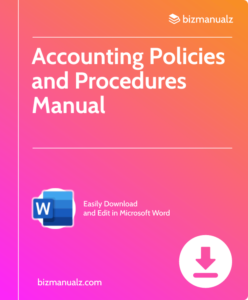How To Become an Accountant

When it comes to numbers and finance, accountants are super important. They’re the backbone of any organization, making sure financial records are precise and following regulations. This article will explain accounting, give examples, and show how to become an accountant.
Becoming an Accountant
Accounting is a system for documenting, understanding, and interpreting financial info. This includes tracking transactions, preparing financial statements, and assessing an organization’s financial health. Accountants use various techniques and tools to do this effectively. They must have strong analytical skills, be detail-oriented, and know relevant laws and regulations.
To pursue accounting, you usually need a bachelor’s degree in accounting or related fields like finance or business administration. Moreover, having a certification like Certified Public Accountant (CPA) gives you an edge in the job market.
With the right education and qualifications, accountants have many career opportunities. They can work for public accounting firms, government agencies, private businesses, or even start their own practices. Furthermore, they can specialize in areas like tax accounting, forensic accounting, or auditing.
Did you know Luca Pacioli is referred to as the “Father of Accounting”? His book “Summa de arithmetica,” published in 1494, introduced double-entry bookkeeping. This concept established modern accounting practices, which are still used today.
So, if you want to work for a big company or help small businesses with finances, becoming an accountant requires hard work and a talent for numbers. By mastering accounting principles and staying up-to-date on industry trends and regulations, you can become a reliable financial professional in any organization.
What is Accounting?
Accounting is the language of business. It’s all about recording, analyzing, and communicating financial transactions to gain insights into a company’s financial health. Accountants are experts in arranging and interpreting financial data.
Accounting is crucial for decision-making in organizations. Accurate records of financial transactions enable businesses to make educated choices. Accountants make sure that financial activities are properly documented and follow regulations.
Accounting can be divided into different parts like financial accounting, management accounting, and tax accounting. Financial accounting involves preparing and giving financial statements to external stakeholders to see a company’s performance. Meanwhile, management accounting focuses on giving internal stakeholders info needed to make decisions.
To become an accountant, you often need a bachelor’s degree in accounting or a similar subject. Companies also typically require their accountants to get qualifications, such as CPA or CA, to show their expertise in the area.
Pro Tip: Keep up to date with the newest advancements in accounting standards and technology to boost your knowledge and career prospects as an accountant.
Importance of Accounting
Accounting is crucial for any business’ success. It tracks financial transactions and provides insights into performance. It records and analyses data, allowing businesses to make wise decisions, spot trends, and plan ahead.
Also, accounting ensures compliance with laws and regulations. It creates transparency and accountability, vital for gaining trust with stakeholders.
Moreover, accounting evaluates the financial health of a business. Financial statements like income, balance sheets, and cash flow statements are prepared, to measure profitability, liquidity, and solvency. This reveals strengths and weaknesses, and areas to improve.
For effective accounting, certain strategies should be used:
- Accurate records must be kept up-to-date.
- Invest in reliable accounting software to simplify processes and reduce errors.
Additionally, qualified accountants who understand accounting principles are needed. These professionals can analyse financial data and provide insights for decision-making. Internal audits should also be conducted to detect discrepancies or fraud.
Steps to Becoming an Accountant
Becoming an Accountant: a Semantic NLP Guide
To become an accountant, follow these steps:
- Earn a bachelor’s degree in accounting or a related field.
- Gain practical experience through internships or entry-level accounting positions.
- Obtain relevant certifications like the Certified Public Accountant (CPA) designation.
- Consider pursuing advanced degrees or specialized certifications for career advancement.
- Develop strong analytical, problem-solving, and communication skills.
- Stay updated on changes in accounting standards and industry regulations.
In addition, it’s important to continuously enhance your knowledge and skills to stay competitive in this field. Explore professional development opportunities and join relevant associations to expand your network and access valuable resources.
Don’t miss out on the rewarding opportunities in the accounting profession. Take the necessary steps now to become an accountant and embark on a successful and fulfilling career in this industry.
A bachelor’s degree in accounting will make you a master of numbers, just don’t expect it to help you calculate the number of hours you’ve wasted watching cat videos.
Obtain a Bachelor’s Degree in Accounting or a Related Field
To become an accountant, obtaining a bachelor’s degree in accounting or a related field is essential. This provides the knowledge and skills needed to succeed.
- First step: enroll in a reputable university or college program. The curriculum covers financial accounting, managerial accounting, taxation, auditing, and business law. Studying these topics gives a deep understanding of how financial transactions are recorded and reported.
Practical experience is just as important. Many universities offer internships or co-op programs. These give students hands-on experience and a glimpse into an accountant’s daily tasks.
Networking is crucial for advancing in the field. Joining professional organizations like the AICPA or local accounting associations provides resources, guidance, and networking events. Establishing connections with professionals can open job opportunities and mentorship.
Also, pursuing more certifications like becoming a CPA can boost career prospects. It shows expertise and commitment to ethical practices. Some employers may require or prefer candidates with this credential.
Gain Relevant Work Experience
Gaining work experience is a must for accountants. It helps you apply what you know in practice, build connections, and get an understanding of the job. Here’s how to get relevant experience:
- Internships: Look for accounting firms or companies with accounting departments. You will learn from professionals.
- Volunteer Work: Non-profits or community groups needing accounting help is a great way to help out and gain experience.
- Part-Time Jobs: Bookkeeping, financial analysis, etc. Build your skill set.
- Networking: Events, associations, and LinkedIn. Good connections lead to job opportunities and mentoring.
- Shadowing: Go to accountants or firms and ask to shadow. Get firsthand exposure and ask questions.
- Continuing Education: Certifications or courses. Commitment to learning and improving.
Also, look for experiences that fit your goals, such as volunteering during tax season or case competitions. One accountant I spoke to started with an internship at a small firm. Through networking and education, they got a full-time job at a larger one and are growing their skills.
Relevant work experience is essential for aspiring accountants. Follow these steps and stay proactive for success in accounting.
Consider Obtaining a Professional Certification
Professional certifications are great for aspiring accountants. They show employers you have the skills and knowledge to succeed. Here are five reasons why you should consider obtaining one:
- Job Opportunities: Having a professional certification boosts your chances of getting a job in accounting. Employers often choose candidates with certifications to show commitment.
- Skill Set: Certifications provide specialized training and knowledge to enhance your accounting skills. They cover topics like auditing, taxation, financial reporting, and internal controls.
- Credibility and Trust: Obtaining certification gives you credibility and trustworthiness, which can lead to advancement or attract clients.
- Networking: Joining a professional association or organization provides networking opportunities in the accounting community. You can attend events and stay up to date with trends.
- Professional Development: Maintaining certification requires ongoing education. This shows employers your commitment to being a professional and staying current.
It is important to research which certification is best for your career goals. Professional certifications have been around for many years to make sure professionals have the knowledge, skills, and competencies to do their jobs well. With the accounting industry evolving, certifications are more valuable than ever.
Continuously Develop and Update Skills
Accountants must continuously grow their skills to stay current in the ever-changing finance and accounting world. Here’s a 5-step guide to help:
- Stay Alert: Subscribe to relevant publications, attend conferences/webinars, join professional networks – know the latest advancements.
- Learn More: Take continuing education courses or certifications – show commitment to professional growth & increase value.
- Adapt to Tech: Understand accounting software, analytics tools, automation – to streamline work & improve accuracy/efficiency.
- Get a Mentor: Find someone to guide you through career dev journey – offer insight, share experiences, & provide guidance.
- Expand Your Skills: Look for opportunities to expand beyond traditional accounting – learn financial analysis, risk mgmt, & strategic planning.
Remember, this is an ongoing process – make learning a habit, set time aside each week, & prioritize personal growth. Invest in yourself & watch your accounting career thrive!
Accounting Understanding Balance Sheets
Accounting is a crucial aspect of financial management that involves the analysis, interpretation, and recording of financial transactions. Understanding balance sheets is essential in accounting as it provides an overview of a company’s financial position at a specific point in time.
Below is a table presenting an example of a balance sheet:
| Amount ($) | |
|---|---|
| Assets | |
| Current Assets | 50,000 |
| Cash | 10,000 |
| Accounts Receivable | 20,000 |
| Inventory | 20,000 |
| Fixed Assets | 150,000 |
| Property | 100,000 |
| Equipment | 50,000 |
| Liabilities | |
| Current Liabilities | 20,000 |
| Accounts Payable | 10,000 |
| Short-term Debt | 10,000 |
| Long-term Debt | 100,000 |
| Owner’s Equity | 180,000 |
| Retained Earnings | 100,000 |
| Common Stock | 50,000 |
| Preferred Stock | 30,000 |
The balance sheet provides a snapshot of a company’s assets, liabilities, and owner’s equity. It helps in assessing the financial health and stability of a business. However, it’s important to note that the balance sheet alone cannot provide a comprehensive analysis of a company’s performance; it should be considered alongside other financial statements.
To gain a comprehensive understanding of financial management, it’s crucial to familiarize oneself with various accounting concepts and principles, such as income statements, cash flow statements, and financial ratios. These tools provide a holistic view of a company’s financial performance and aid in making informed business decisions.
By developing a strong understanding of balance sheets and other financial statements, individuals can enhance their competency in accounting and excel in their careers as accountants, financial analysts, or financial managers.
Don’t miss out on the opportunity to become a skilled accountant and unlock numerous career prospects. Start your journey today!
If numbers could talk, a balance sheet would be a melodrama, revealing the financial affairs of a business with more twists and turns than a romance novel.
Definition of a Balance Sheet
A balance sheet is a financial statement providing a snapshot of a company’s financial position at one point. It shows what the company has and owes, like assets, liabilities, and shareholders’ equity. Examining the sheet helps stakeholders assess the company’s overall financial health and make good decisions.
The components on a balance sheet include:
- Assets:
- Current Assets
- Fixed Assets
- Liabilities:
- Current Liabilities
- Long-term Liabilities
- Shareholders’ Equity:
- Common Stock
- Retained Earnings
Current assets are ones expected to be converted into cash or used up in one year. These include cash, accounts receivable, and inventory. Fixed assets are long-term, like equipment, buildings, and land.
On the other side, current liabilities are obligations due in one year, like accounts payable and short-term debt. Long-term liabilities are debts with maturity dates beyond one year, like bank loans or bonds.
Shareholders’ equity is the owners’ claim on the company’s assets after deducting liabilities. It has two parts: common stock (the capital provided by shareholders) and retained earnings (profits kept within the company).
Interpreting a balance sheet correctly requires knowledge of these components. The data it presents provides information about a company’s liquidity, solvency, and financial stability.
Balance sheets have been around for centuries. In 1472, Benedetto Cotrugli from Dubrovnik wrote “Il Libro dell’arte della Mercatura.” It outlined double-entry bookkeeping principles which formed the basis for modern accounting practices. Since then, balance sheets have become an important tool for businesses around the world, helping them evaluate their financial performance and make decisions.
Components of a Balance Sheet
A balance sheet reveals a company’s financial situation by showing its assets, liabilities, and shareholders’ equity. Being familiar with these components is essential for evaluating a company’s finances and making informed decisions.
Balance sheets have three main parts: Assets, Liabilities and Equity. Assets include cash, accounts receivable, inventory, property, plant and equipment, and investments. Liabilities are made up of accounts payable, loans payable, accrued expenses, and long-term debts. Shareholders’ Equity is the value of a company’s assets after subtracting liabilities.
In addition to these three parts, other details are also important. These consist of current assets versus non-current assets, current liabilities versus long-term liabilities, and various ratios such as liquidity ratios and solvency ratios. Examining these gives an idea of a company’s ability to pay short-term debts and its financial stability.
It’s amazing that balance sheets have been used for centuries! Records of people’s assets and debts were found in 4000 BC on clay tablets from Mesopotamia.
By looking at these components and their relationships, you can get a better understanding of a company’s financial situation and make wise decisions.
Example and Explanation of a Balance Sheet
Balance sheets are a financial statement that show assets, liabilities, and shareholders’ equity of a company at a certain time. It gives an overview of a company’s financial position and helps stakeholders understand its solvency and liquidity. Let’s take a look at an example!
| Assets | Liabilities | Shareholders’ Equity |
|---|---|---|
| Current Assets: | Current Liabilities: | |
| – Cash and Cash Equivalents | – Accounts Payable | – Common Stock |
| – Short-term Investments | – Short-term Debt | – Retained Earnings |
| – Accounts Receivable | ||
| – Inventory | ||
| Non-current Assets: | ||
| – Property, Plant, and Equipment | ||
| – Intangible Assets | ||
| – Long-term Investments |
A balance sheet reveals the proportion of current assets to current liabilities, which can tell you if a company can manage short-term obligations. Examining non-current assets can show long-term investments. This is important information for investors, creditors, and other stakeholders. Don’t miss out on using this great tool to gain insight into companies!
Become an Accountant
In conclusion, becoming an accountant is a great career choice that requires commitment and ongoing education. It offers the chance to work in various industries, manage finances, and support the success of organizations.
As an accountant, you’ll have a major role managing money records, analyzing data, and guaranteeing compliance with accounting regulations. Your abilities will help businesses make educated decisions and maximize their gains. Also, accountants give important information to stakeholders by creating financial statements and tax returns.
To start this journey, begin by getting an accounting degree or certification program. This will give you the necessary knowledge in areas like auditing, taxation, and financial management. Internships or entry-level jobs provide real-world experience and industry understanding.
Having strong analytical skills is vital to do well in this field. Accountants must be proficient in using different financial software and tools to manipulate data efficiently. Also, staying up-to-date with changes in accounting regulations is vital for accuracy and compliance.
In addition, networking is essential for advancing your career as an accountant. Join professional associations and attend industry events to expand your network. Developing connections with other professionals can lead to job openings and mentorship.
Frequently Asked Questions
 1. What is accounting?
1. What is accounting?
Accounting is the process of measuring, processing, and communicating financial information about a business entity. It involves recording, summarizing, and interpreting financial transactions to provide useful data for decision-making purposes.
2. What qualifications are needed to become an accountant?
To become an accountant, you typically need a bachelor’s degree in accounting or a related field. Some employers may prefer candidates with a master’s degree or CPA (Certified Public Accountant) certification. Strong mathematical, analytical, and organizational skills are also important for this profession.
3. What are the duties and responsibilities of an accountant?
An accountant’s duties may include preparing financial statements, analyzing financial data, ensuring compliance with tax regulations, managing budgets, conducting audits, and providing financial advice to clients or stakeholders. They may also handle payroll, bookkeeping, and reconciling accounts.
4. Can you provide an example of how accounting is used in practice?
Let’s say a company wants to assess its profitability. An accountant would analyze its revenue and expenses, calculate the net income, and prepare financial statements such as the income statement, balance sheet, and cash flow statement. These reports help the company determine its financial health and make informed business decisions.
5. Is accounting a good career choice?
Yes, accounting can be a rewarding and stable career choice. The demand for accountants is high in various industries, and it offers opportunities for growth and advancement. Accountants also have the potential to earn competitive salaries and enjoy job security.
6. How can I become a successful accountant?
To become a successful accountant, it is essential to continue learning and stay updated with the latest accounting principles, regulations, and software. Building strong analytical and problem-solving skills, attention to detail, and effective communication abilities are also crucial.
















Leave a Reply